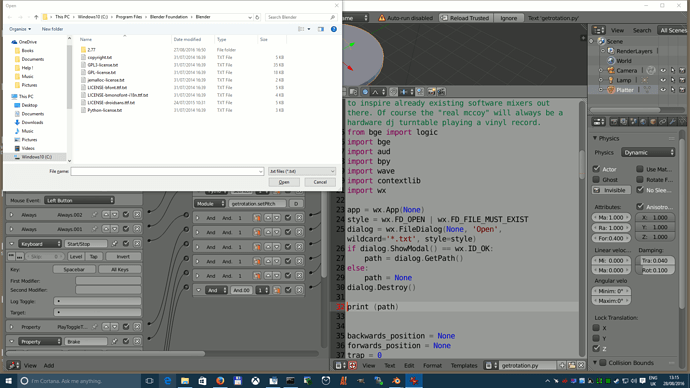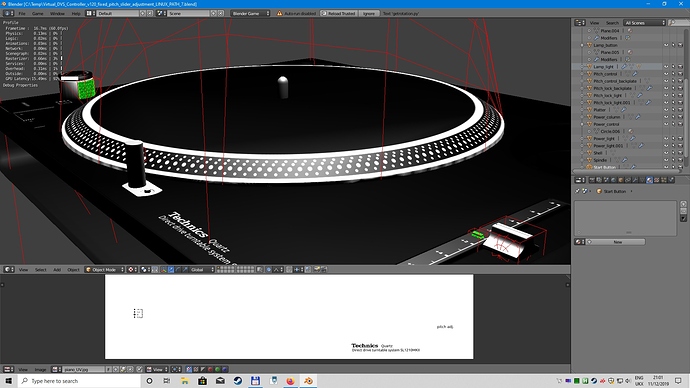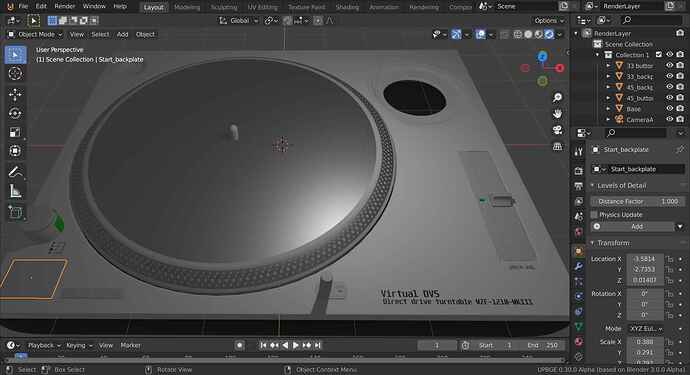I’m struggling to setup a Blender Python installation that allows full installation of modules including https://wiki.wxpython.org/ProjectPhoenix … there is no binary installation available so even though I got “pip” working in the packaged Python that comes with Blender, the of wxPython fails compile fails.
http://files.djbarney.org/pip_wxpython-phoenix_install_output.txt
This does work on Windows where I have installed specific system Python version 3.5.1 for this Blender version (2.77) but I really need to be in Linux. However in Linux (Ubuntu) it seems to be impossible to install a specific system Python version.
I got “pip” to install by using the latest Blender version: https://builder.blender.org/download/ … and then …
~/Downloads/blender-2.77-a5261e0-linux-glibc219-x86_64/2.77/python/bin/python3.5m ~/Downloads//get-pip.py
… and then …
~/Downloads/blender-2.77-a5261e0-linux-glibc219-x86_64/2.77/python/bin/python3.5m /home/michaelzfreeman/Downloads/blender-2.77-a5261e0-linux-glibc219-x86_64/2.77/python/bin/pip install module
… installs modules to …
"/home/michaelzfreeman/Downloads/blender-2.77-a5261e0-linux-glibc219-x86_64/2.77/python/lib/python3.5/site-packages
… then wxPython Phoenix installation …
~/Downloads/blender-2.77-a5261e0-linux-glibc219-x86_64/2.77/python/bin/python3.5m /home/michaelzfreeman/Downloads/blender-2.77-a5261e0-linux-glibc219-x86_64/2.77/python/bin/pip install -U --pre -f https://wxpython.org/Phoenix/snapshot-builds/ wxPython_Phoenix
But the build fails (see above). It seems to then want to find “python-config” and also starts looking for a system python library path variable.
I tried setting some variables but the Python that comes with Blender only has a non-built version of “python-config” which refuses to build.
It was recommended to me to try “One workaround that may work for you would be to use a stock Python 3.5 or a virtualenv made from the stock Python 3.5, to build a wheel file and then install that wheel into the Blender Python, something like this: “pip -v wheel wxPython_Phoenix-3.0.3.dev2445+ca34d71.tar.gz”, using the pip from the stock or virtualenv Python 3.5.” but I’m still not convinced that its not possible to do all this in the Blender Python directory.The closest thing I’ve found is this: https://wiki.blender.org/index.php/User:Brita/Configs/Pyenv … but its more for a Blender build environment.
Is having a fully functional Blender Python directory possible ? Otherwise I’ll have to build separately and transfer across to Blender.

 .
.


